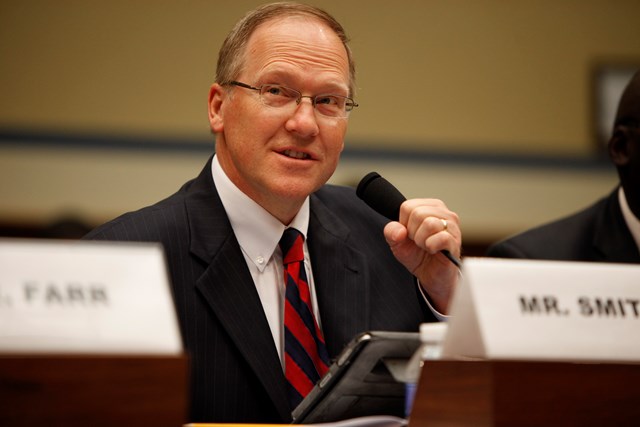Robert Smith Testifies before Congress on Protecting International Religious Freedom

Thanks to the BYU Law School News Team for content of this article
Robert T. Smith, Managing Director of the International Center for Law and Religion Studies, testified on 18 September 2014 before the US House of Representatives Committee on Oversight & Government Reform on the topic “Protecting International Freedom.” Mr. Smith’s testimony specifically addressed ways to improve international religious freedom through better implementation of the 1998 International Religious Freedom Act. With international tensions running high due to violence caused by religiously motivated groups such as the Islamic State in Syria and Iraq and Boko Haram in Nigeria, Congress is anxious to help improve religious freedom around the globe. Many believe that religious oppression contributes to the pressures that are at the heart of religiously motivated violence. Smith’s recommendations to Congress called for a positive approach to encouraging other countries to adopt greater religious freedom measures. Building upon last year’s Congressional testimony on the International Religious Freedom Act, Smith added, “My major additional recommendations focus on … identifying and incentivizing better religious compliance through the use of positive measures authorized by the Act.” Smith posited that United States’ policy has been ineffective on the global stage because of its almost exclusive reliance on negative sanctions imposed on “Countries of Particular Concern.” “
With limited designations of Countries of Particular Concern and the imposition of almost no actual motivating sanctions, is it any wonder that U.S. policy has had such a negligible impact on worldwide international religious freedom?” Smith asked. “The U.S. government has only imposed one sanction against one country in 16 years while during that same time period international religious freedom has rapidly declined. While sanctions may be necessary for countries with particularly bad religious freedom records, we need to do something different if we want different results.” Smith noted: The law already allows for positive incentives such as linking economic, humanitarian, or military aid to positive progress on religious freedom. We just need to use these incentives. Especially with the vast majority of countries that are not ‘Countries of Particular Concern,’ positive incentives are really the only thing the US. can do to motivate improvements in international religious freedom.
“My recommendations to Congress were heavily influenced by my work at the International Center for Law and Religion Studies at BYU,” said Smith. Our Center helps sponsor numerous conferences around the world each year with government, academic, and religious leaders. Collectively we search for positive solutions to religious freedom problems. This makes sense because fundamentally the threat of negative sanctions has proven to be a poor motivator of religious freedom. Does it really make send to try and force freedom? “Religious freedom requires a change in peoples’ understanding of its benefits to society. For example, current research reveals that religious freedom is correlated with many social goods including improved economic development. With positive encouragement by the U.S. and better understanding of the benefits of religious freedom, other countries will come to recognize that religious freedom provides its own rewards.”
During the hearing USCIRF Chair Dr. Katrina Lantos Swett supported increased use of positive religious freedom incentives under the International Religious Freedom Act saying she liked the suggestion that we promote religious freedom with “Countries of Particular Opportunity.” Smith noted that he is currently corresponding with Dr. Lantos Swett on ways to encourage the use of positive incentives as already authorized by the International Religious Freedom Act. We are currently collaborating on ways to encourage the use of positive incentives as already authorized by the International Religious Freedom Act.
To read or view Professor Smith’s remarks, as well as the testimonies of others participating in the event, please click the links below.